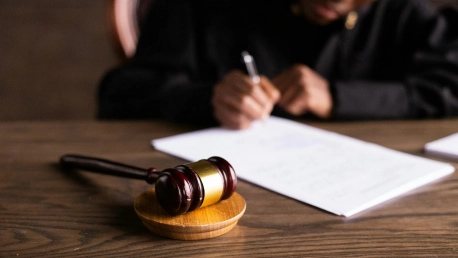In an age where artificial intelligence (AI) weaves itself increasingly into the fabric of various professions, the legal sector is no exception. UK lawyers are voicing their perspectives on how they believe the regulatory reins of AI should be handled within the law. A Thomson Reuters survey sheds light on these attitudes, revealing a favored tilt towards self-regulation over government intervention. The numbers bear this out: 48% of law firm lawyers and a comparable 50% of in-house lawyers express a preference for industry self-governance. This leaves a smaller contingent—36% at law firms and 44% of in-house counsel—who are in favor of government regulation.The justification for this preference is not hard to discern. Legal professionals are opting for a proactive stance, empowering themselves with AI skills training and setting up internal guidelines. Their objective is twofold: to ensure AI’s use within the legal realm remains both safe and advantageous, and to maintain trust and control without an over-reliance on governmental oversight.
A Global Perspective on AI Regulation in Law
AI’s growing presence in various industries includes law, where UK attorneys are weighing in on its regulatory framework. Findings from a Thomson Reuters survey highlight a propensity for self-guidance over government control among legal professionals. Specifically, 48% of lawyers in private practices and 50% of corporate legal counsels favor industry-led regulation, whereas 36% and 44%, respectively, support governmental oversight.The rationale behind the preference for self-regulation lies in the legal community’s desire to self-educate on AI and establish internal protocols. They aim to ensure AI’s use in the legal field remains effective and secure while upholding autonomy and minimizing dependence on government rules. This approach demonstrates a forward-thinking, self-empowering ethos among legal practitioners aiming to harness AI responsibly and maintain client trust through in-house governance, rather than external mandates.









